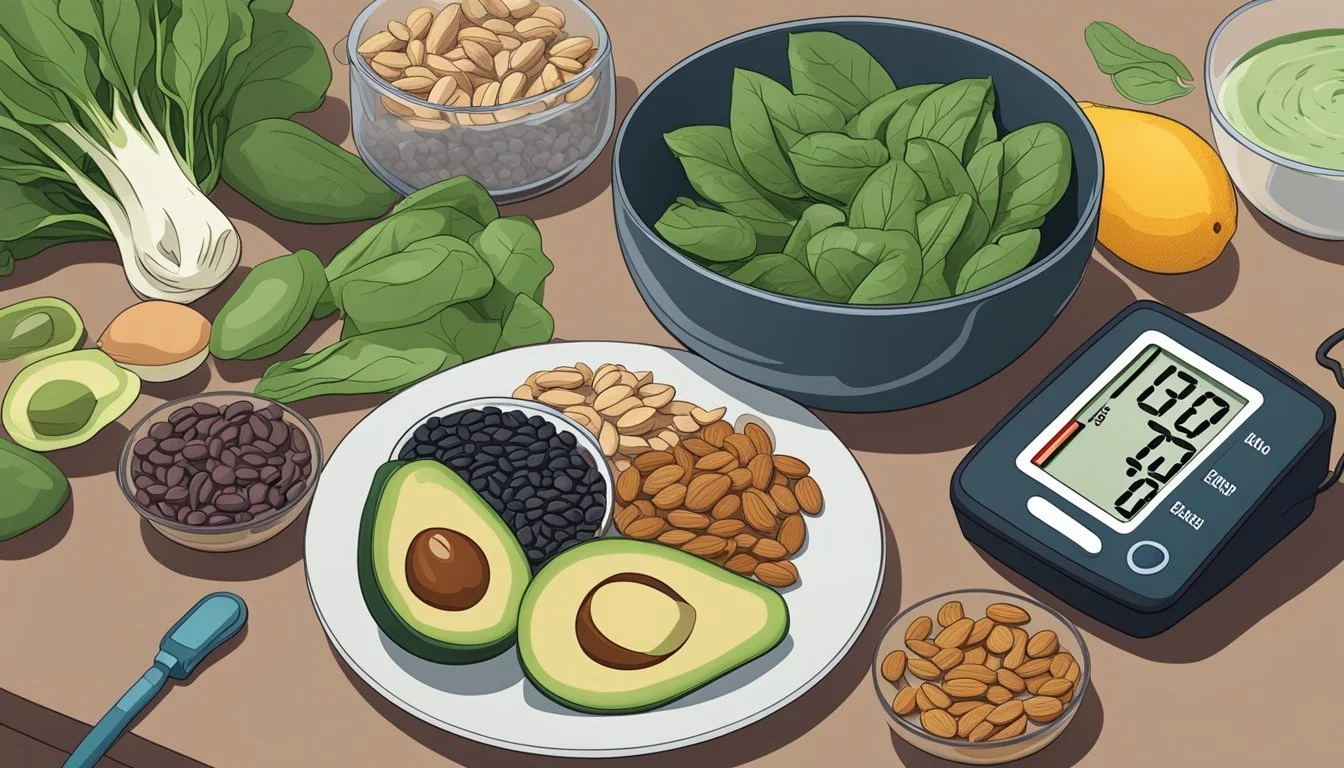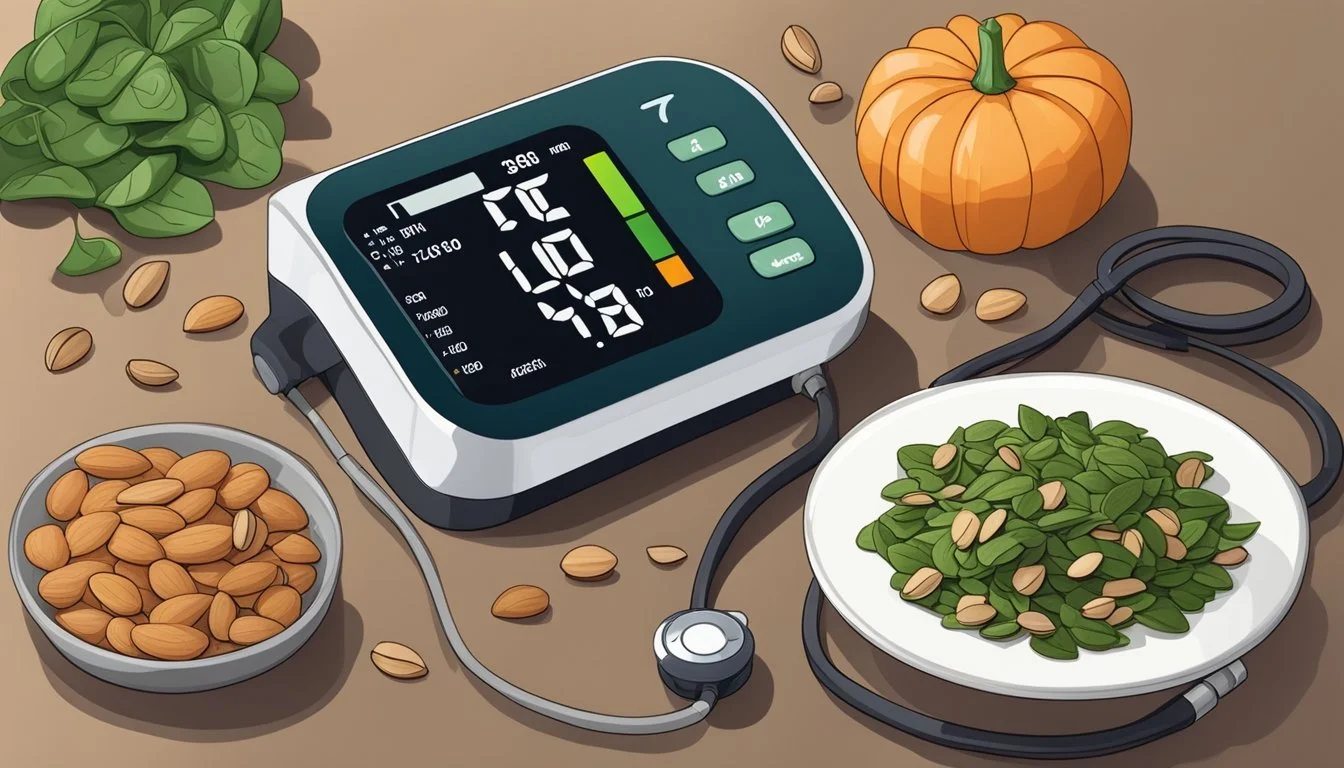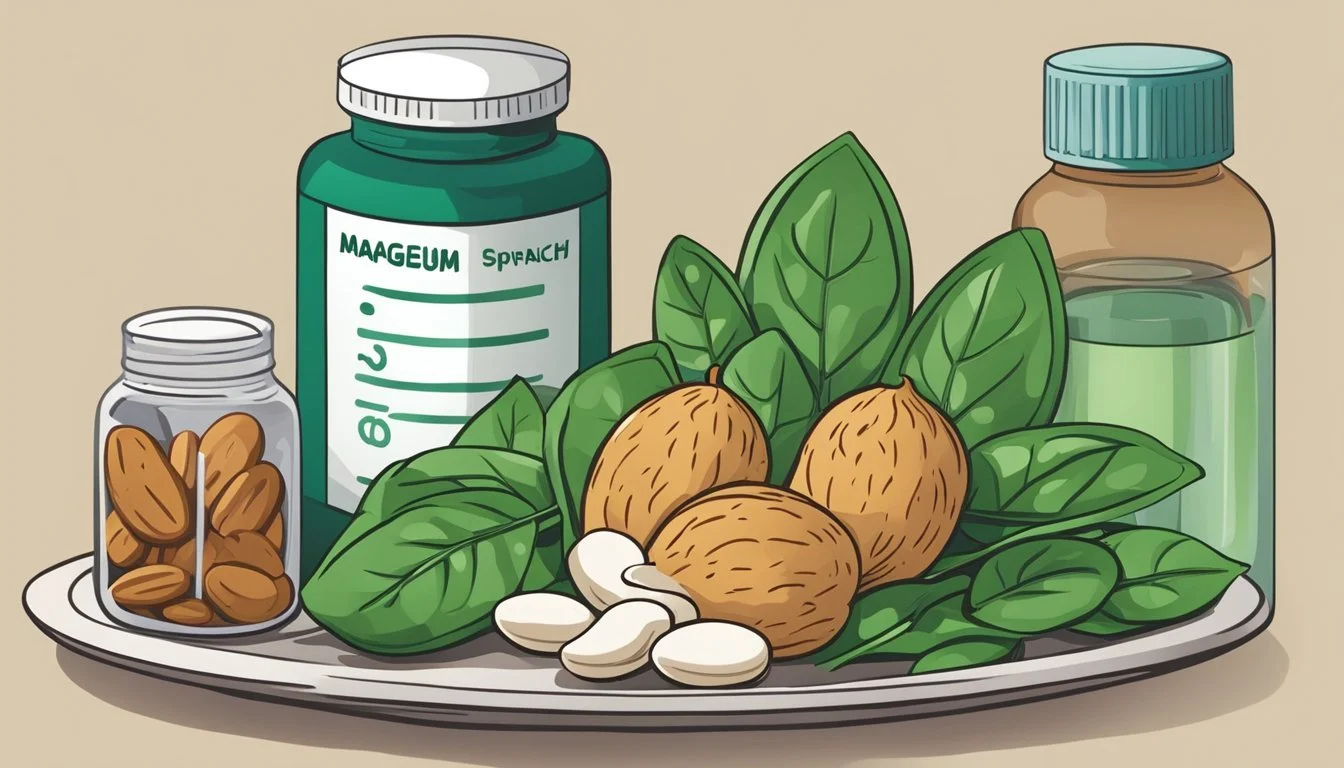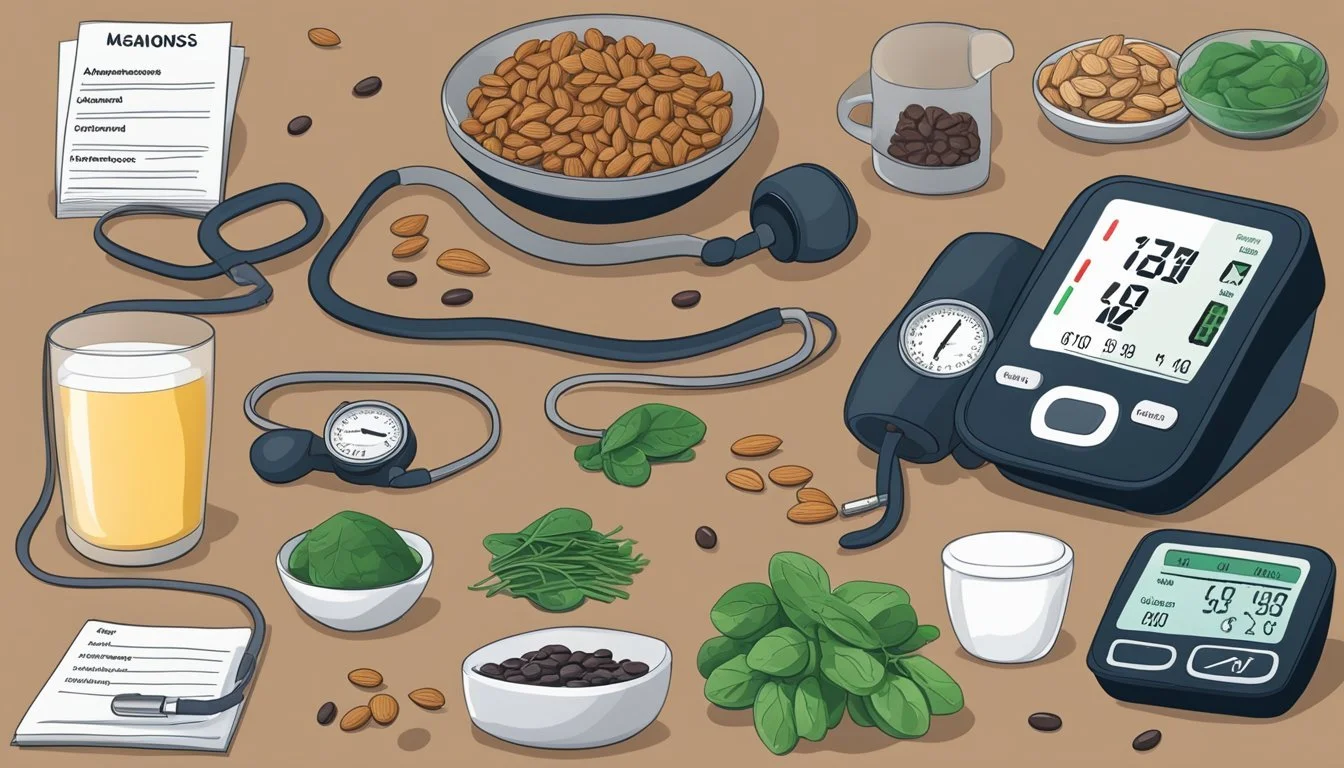What Are Some Good Sources of Magnesium for Managing Hypertension
Essential Foods for Blood Pressure Control
Magnesium plays a crucial role in maintaining optimal blood pressure levels and overall cardiovascular health. As an essential mineral, it aids in the proper functioning of various bodily processes, including the regulation of blood pressure. Hypertension, or high blood pressure, is a common condition that can lead to serious health issues such as heart disease and stroke. Incorporating magnesium-rich foods into one's diet is a strategic approach to manage hypertension.
Some of the best dietary sources of magnesium include leafy green vegetables like spinach, legumes such as black beans, nuts like almonds and peanuts, and seeds. These foods not only offer magnesium but also come with an array of other beneficial nutrients. Magnesium's importance in blood pressure management is not to be underestimated. Consistently consuming these magnesium-rich foods can contribute to a balanced diet and may help in keeping blood pressure within a healthy range.
Understanding Hypertension
Hypertension, commonly referred to as high blood pressure, is a prevalent cardiovascular condition where the force against the artery walls is too high. It is often called the "silent killer" because it can be asymptomatic for a long period, yet it significantly elevates the risk of heart disease and stroke.
Blood pressure is measured using two numbers: the systolic pressure (the force during heartbeats) and diastolic pressure (the force between heartbeats). Normal blood pressure is typically around 120/80 mm Hg. Hypertension is diagnosed when readings consistently show a systolic pressure above 130 mm Hg or a diastolic pressure above 80 mm Hg.
Both genetic and lifestyle factors contribute to hypertension. Lack of physical activity, an unhealthy diet, obesity, and tobacco use amplify one's risk. Individuals with hypertension may experience symptoms such as headaches, shortness of breath, or nosebleeds, although these signs are not exclusively tied to elevated blood pressure.
Long-term hypertension can cause harm to the blood vessels, leading to complications such as:
Heart disease: Damaged arteries are less able to deliver sufficient blood to the heart muscle.
Stroke: Impaired blood flow or clotting within brain vessels can precipitate a stroke.
Cardiovascular disease: This broader category includes any disease that affects the heart or blood vessels, often exacerbated by high blood pressure.
Monitoring blood pressure, adopting a healthier lifestyle, and prescribed medications are pivotal in managing hypertension. Regular check-ups are essential since detection and early intervention can prevent or minimize further health complications.
Role of Magnesium in the Body
Magnesium, a vital mineral in the body, is essential for numerous biological processes and plays a significant role in blood pressure regulation. Acting as a cofactor for over 300 enzyme systems, it contributes to the structural development of bones and is necessary for the synthesis of DNA.
Biological Functions of Magnesium
The body requires magnesium to maintain its basic functions. As an ion, it participates in a variety of enzymatic reactions that are critical for the proper execution of bodily processes. Key areas where magnesium is crucial include:
Energy production: It aids in converting food into energy.
Protein formation: Magnesium helps create new proteins from amino acids.
Gene maintenance: It contributes to the repair and creation of DNA and RNA.
Muscular movements: Magnesium is involved in the contraction and relaxation of muscles.
Nervous system regulation: It regulates neurotransmitters, which send messages throughout the brain and nervous system.
Magnesium and Blood Pressure Regulation
Magnesium plays a role in maintaining normal blood pressure levels. It is hypothesized that magnesium achieves this through several mechanisms:
Endothelial function: Magnesium helps improve the health of the blood vessels' lining, known as the endothelium.
Vasodilation: The mineral aids in the relaxation of blood vessels, which in turn can lower blood pressure.
An adequate level of serum magnesium is therefore associated with a lower risk of hypertension, as proper magnesium levels ensure that blood vessels can function correctly, avoiding undue constriction that can elevate blood pressure.
Sources of Magnesium
Magnesium is a vital mineral essential for blood pressure regulation and overall cardiovascular health. Adequate intake can be achieved through a variety of foods and supplements.
Dietary Sources of Magnesium
A well-balanced diet can provide sufficient magnesium. Some of the richest dietary sources include:
Legumes: Black beans and other varieties of beans offer a substantial amount of magnesium.
Nuts: Almonds, peanuts, and cashews are not only high in magnesium but also bring beneficial fats and protein.
Leafy Green Vegetables: Cooked spinach and swiss chard are packed with magnesium.
Whole Grains: Many whole grains are a good source of dietary magnesium.
Fish: Certain types of fish, such as salmon and mackerel, contain magnesium.
Dairy Products: Milk and yogurt contribute to magnesium intake.
Employing a diverse array of these foods can help manage magnesium levels effectively.
Magnesium Supplements
For those who struggle to meet their magnesium needs through diet alone, supplements can be a useful alternative:
Supplemental Forms: Available in various forms, such as magnesium oxide, citrate, or chloride. Dosage difference is key, as too much can cause undesired effects.
Efficacy: Supplements may take several weeks to show an effect on blood pressure, with higher doses potentially having a greater impact.
Physicians often recommend consistent use over time to evaluate the benefits of magnesium supplementation on hypertension.
Magnesium and Diet
In the management of hypertension, dietary choices play a crucial role, with magnesium intake being a significant factor. Consistent consumption from varied food sources can contribute to meeting the Recommended Dietary Allowance (RDA) and benefit cardiovascular health.
Influence of Diet on Hypertension
Diet profoundly affects blood pressure levels. Foods rich in magnesium are particularly important as they're linked to better blood pressure control. A healthy diet that includes magnesium-rich foods can aid in hypertension management. Sources high in dietary magnesium include:
Leafy greens: Spinach and Swiss chard are excellent sources.
Nuts and seeds: Unsalted almonds and peanuts.
Legumes: Black beans are a notable example.
In addition to their magnesium content, these foods are also high in fiber and naturally low in sodium, two factors that collaborate with magnesium to support blood pressure regulation.
Recommended Dietary Allowance (RDA) for Magnesium
The RDA for magnesium varies according to age and gender. Listed below is a simplified breakdown of magnesium intake recommendations:
Age Group Males (mg/day) Females (mg/day) 19-30 years 400 310 31 years and older 420 320
In the context of hypertension and cardiovascular health, some studies suggest an increase in daily magnesium intake could lead to modest blood pressure improvements, with higher dosages over 370 mg per day showing more impact. However, as individual needs may vary, it's best to consult healthcare professionals for personalized dietary advice.
Benefits of Magnesium for Hypertension
Magnesium plays a pivotal role in managing hypertension, with clinical trials revealing its impact on blood pressure control. This section explores the evidence from research and the specific effects magnesium has on managing hypertension.
Clinical Trials and Research
Clinical trials have consistently examined the relationship between magnesium intake and blood pressure, with varying results. A systematic review that aggregated results from multiple studies showed that, on average, magnesium supplementation could reduce systolic blood pressure by a small amount. For instance, one meta-analysis reported that a median dose of 368 mg of magnesium daily for about three months resulted in a modest reduction in systolic blood pressure. However, it is crucial to note that outcomes can differ considerably based on individual characteristics and study designs.
Magnesium’s Effect on Blood Pressure Control
Magnesium aids in blood pressure control by acting on the vascular system. It helps by dilating blood vessels, thereby reducing vascular resistance which is a key factor in the development of hypertension. Studies suggest that higher magnesium intake is associated with lower blood pressure, and the effects may be more significant at doses above 370 mg per day. Over a period of three to four weeks, individuals may begin to see the impact of magnesium supplementation on their blood pressure levels. It's important to recognize that magnesium is not a standalone solution and should be considered part of a broader approach to managing hypertension.
Interactions with Other Minerals and Medications
Managing hypertension often involves considering the balance of various minerals in the body and understanding how these interact with medications. Magnesium plays a vital role, but it does not act in isolation. It's important to note how it interacts with other minerals such as calcium and potassium, as well as with antihypertensive medications and other pharmaceuticals.
Magnesium and Calcium
Magnesium and calcium work in tandem to support muscular and nervous system function. Calcium is crucial for muscle contractions, while magnesium aids in muscle relaxation. A magnesium deficiency can offset this balance, potentially impacting blood pressure control. Calcium channel blockers are a type of antihypertensive medication that can affect the body's calcium levels.
Calcium Channel Blockers: These medications reduce blood pressure by preventing calcium from entering cells of the heart and blood vessel walls, thereby decreasing cardiac workload and relaxing blood vessels. Adequate magnesium levels are essential for the effectiveness of these drugs.
Magnesium and Potassium
Potassium, another key mineral, works closely with magnesium in maintaining proper blood pressure. Both minerals are vital for healthy heart function and vascular tone.
Potassium's Role: It helps to regulate heartbeat and mitigates the negative effects of sodium on blood pressure. Magnesium deficiency can impair potassium levels and vice versa, which may necessitate adjustments in dietary intake or supplementation to manage hypertension effectively.
Magnesium and Medications
Certain medications can influence magnesium levels by either reducing absorption or increasing its excretion, which may impact blood pressure regulation.
Diuretics: Often prescribed for hypertension, some diuretics can lead to the excretion of magnesium, potentially necessitating supplementation.
Interaction with Medications: Medications, including diuretics and proton-pump inhibitors, can affect magnesium levels, either by increasing its loss or altering its absorption, and may interfere with the body's metabolism of other drugs.
In summary, magnesium's beneficial effects on hypertension can be affected by its interaction with calcium, potassium, and various medications. It’s critical for healthcare providers to consider these interactions when managing a patient's hypertension treatment plan.
Potential Side Effects and Risks
When considering magnesium supplementation for hypertension, it is essential to understand the potential side effects and risks associated with oral magnesium therapy. While magnesium is generally safe for most adults when taken in proper doses, there can be adverse effects, particularly when taken in excessive amounts or without medical supervision.
Adverse Effects:
Diarrhea: Perhaps the most common side effect of oral magnesium supplements is diarrhea. This occurs because magnesium can have a laxative effect on the gastrointestinal tract.
Other Gastrointestinal Issues: High doses can also lead to abdominal cramping and nausea.
Precautions:
Kidney Function: Individuals with existing kidney disease should exercise caution as their kidneys may not be able to remove excess magnesium efficiently, leading to toxicity.
Medication Interactions: Magnesium can interact with certain medications, altering their effectiveness. It is crucial for individuals to consult healthcare providers before starting oral magnesium therapy.
Dosing Guidelines:
Magnesium supplements are available in various forms, including pills and powders. The recommended upper limit for supplemental magnesium is:
350 mg per day for adults
Exceeding this limit may increase the risk of negative outcomes.
Conclusion:
To minimize side effects and ensure safety, individuals interested in taking magnesium supplements should do so under the guidance of a healthcare professional who can tailor the dose to the individual's health status and dietary needs.
Magnesium Intake Guidelines
To effectively manage hypertension, understanding the appropriate magnesium intake is crucial. Magnesium plays a role in blood pressure regulation, and proper dosing is key.
Daily Magnesium Needs
The Recommended Dietary Allowance (RDA) for magnesium varies by age, sex, and life stage. Adults generally require between 310 to 420 mg of magnesium per day. Some studies suggest that an intake of 500 mg to 1000 mg of magnesium per day may help in reducing blood pressure, although this can vary based on individual circumstances.
For Adults:
Men: 400-420 mg/day
Women: 310-320 mg/day
Consulting with a Healthcare Provider
Before individuals adjust their magnesium intake, it’s imperative to consult with a healthcare provider. They can offer personalized advice considering the patient's health history, current condition, and dietary needs. A doctor may also suggest a blood test to measure the body’s magnesium levels, ensuring that the patient’s intake aligns with their specific needs and to avoid potential overconsumption.
Conclusion
In the context of managing hypertension, magnesium emerges as a notable mineral due to its potential to influence blood pressure levels. Incorporating magnesium-rich foods into one's diet can be a strategic part of maintaining optimal blood pressure. Foods that provide a substantial amount of magnesium include:
Nuts such as almonds and peanuts
Leafy greens like spinach
Legumes including black beans
While the recommended dietary allowance (RDA) for magnesium varies by age and sex, it is generally understood that adults should aim for 320–420 mg per day.
It’s crucial for individuals managing hypertension to understand that a healthy diet is just one facet of a multifaceted approach to controlling high blood pressure, which can also include regular physical activity, medication as prescribed by healthcare providers, and stress management. Ensuring a balanced intake of nutrients, alongside magnesium, contributes to a holistic strategy in managing blood pressure.
Research demonstrates that while magnesium can assist in modestly reducing blood pressure, one should maintain realistic expectations about the extent of its impact as it should complement, not replace, other evidence-based therapeutic interventions.
By focusing on a magnesium-rich diet and adhering to established guidelines for managing high blood pressure, individuals can work towards a sustainable and healthy approach to controlling hypertension.






